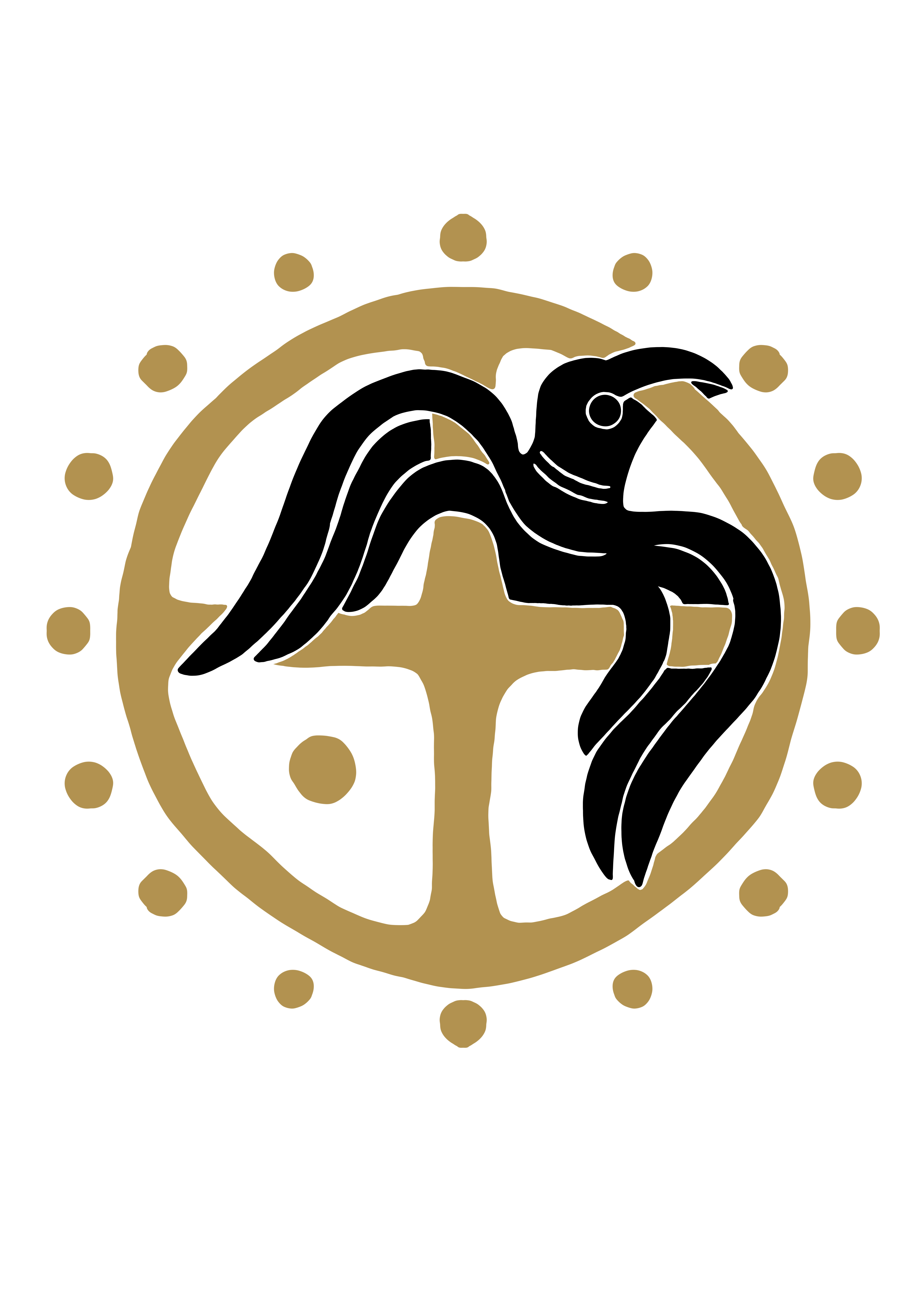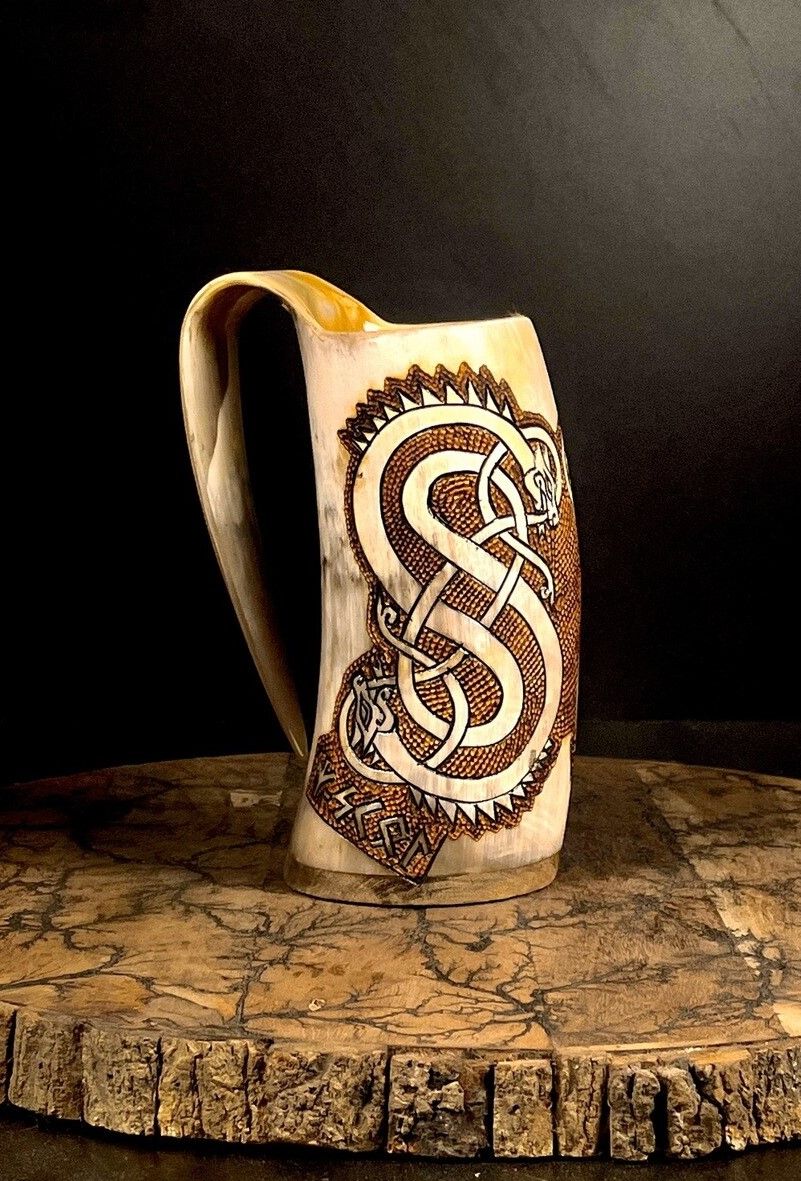Crafting Norse Art Excellence: Premium Viking Drinking Horn Cups Collection - "Ragnarok"
Title: "Viking Drinking Horn Cup "Ragnarok" Set - AlgizRune Workshop, Canada"
Description: "Immerse yourself in the Viking spirit with our premium Viking Drinking Horn Cup "Ragnarok" Set, carefully crafted by AlgizRune Workshop in Canada. Each set comes complete with a stylish gift bag, making it ideal for LARPing adventures, Viking-themed decor, or as a unique gift.
Available in two sizes (400-500 ml and 700 ml - 1 Litre), these drinking horn cups are more than just vessels; they are a piece of Viking heritage designed to enhance your drinking experience. Crafted from top-quality drinking horn, each cup is meticulously polished and cleaned for safe usage. Please note that the shape and color of the horn may vary from the image.
While perfect for cold drinks like beer, mead, and wine, our horn cups are not suitable for strong alcohol or for use in dishwashing machines or microwaves. Simply wash with warm water after each use for longevity.
Additionally, our Norse Horn Cup masterpiece is protected by UK and Canadian law, ensuring its authenticity and craftsmanship.
Important Notice: Enjoy free shipping for our SKAL horns cups made in Canada, though import taxes may apply, the responsibility lies with the buyer.
Embrace the impending Ragnarok with our drinking horn set, and delve into the deep and complex symbolism of this Norse apocalyptic event. Ragnarok offers a fascinating exploration of moral ambiguity, cyclical nature, inevitability, and cosmic phenomena, making it a compelling aspect of Norse mythology that continues to captivate people worldwide.
Celebrate Viking heritage with AlgizRune Workshop's "Ragnarok" Drinking Horn Cup Set, and indulge in the timeless allure of Norse mythology."
#VikingDrinkingHorn #AlgizRuneWorkshop #RagnarokSet #NorseMythology #VikingHeritage #LARPingAdventure #VikingDecor #VikingGift #PremiumQuality #Handcrafted #CanadianMade #AuthenticCraftsmanship #SKALHorn #VikingSpirit #VikingCulture #ApocalypticEvent #Symbolism #CulturalHeritage

